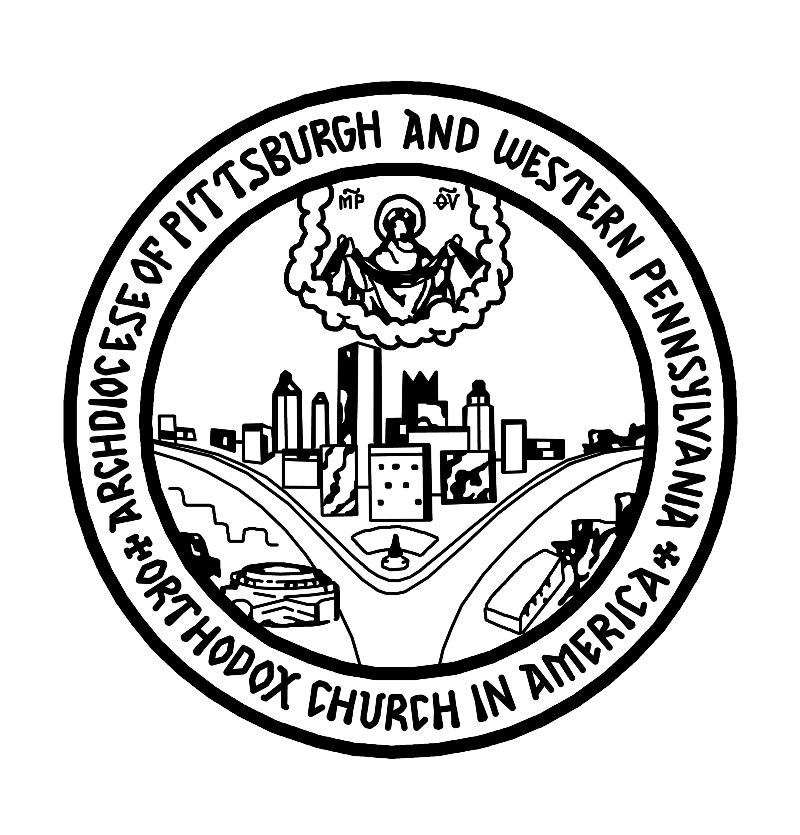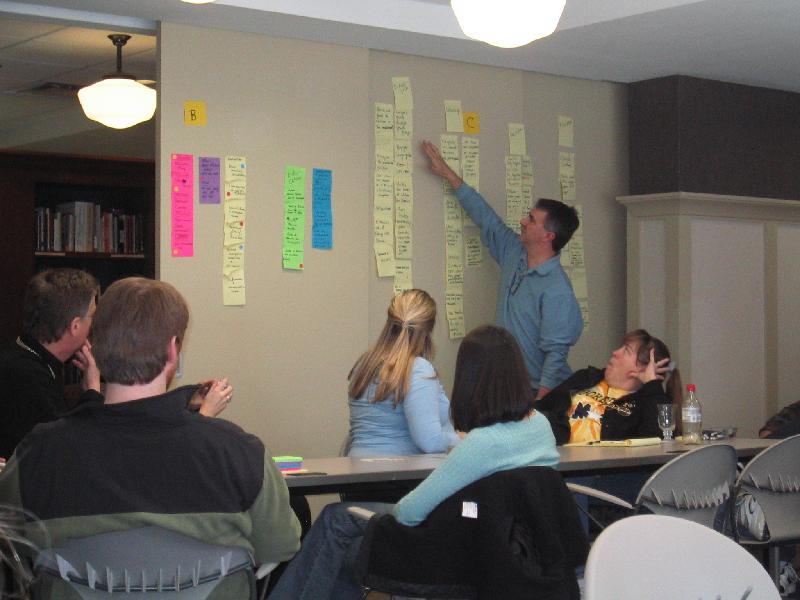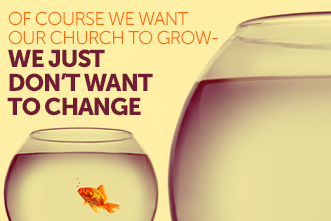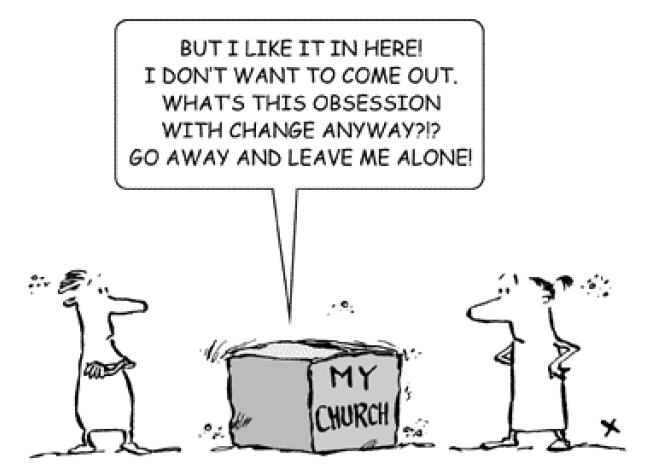|
|
Parish Pulse 
A Newsletter for Parish Leaders
Archdiocese of Pittsburgh and Western Pennsylvania
Orthodox Church in America
October, 2015 - Vol 3, Issue 4
|
|
|
|
Quick Links
Quick access to resources available on the Archdiocesan webpage or in a few cases the Midwest Diocese website.
Growth & Vision
Parish Renewal
Parish Ministry & Education
Evangelization
Communicating Your Parish
Youth
Videos. Podcast & PowerPoint Presentations
|
|
|
 |
|
In Christ,
Joe Kormos
Parish Development Ministry Leader Archdiocese of Western Pennsylvania
|

.
| 'Ministry of Parish Council' Webinar Series
Session 1 @ 8 PM EST Tuesday Nov. 3 2015
|
 The Archdiocese of Western Pennsylvania will present a multi-part webinar series titled the Ministry of the Parish Council. Session one will be held at 8:00 PM Tuesday November 3. Participation is free and open to clergy and lay leaders from any OCA Diocese or Orthodox jurisdiction. You must register to attend. Speaker is Joe Kormos, Parish Development Ministry leader. The Archdiocese of Western Pennsylvania will present a multi-part webinar series titled the Ministry of the Parish Council. Session one will be held at 8:00 PM Tuesday November 3. Participation is free and open to clergy and lay leaders from any OCA Diocese or Orthodox jurisdiction. You must register to attend. Speaker is Joe Kormos, Parish Development Ministry leader.

Originally Presented at Leaders Day 2014 Originally offered in October 2014 in Canonsburg PA as the annual Leaders Day session, the series is being offered as training for clergy and parish council members who were unable to attend in October 2014 --and for new parish council members or other parish leaders.
This multi session webinar series will explore & rethink parish leadership. We will examine the need to transition parish councils from being the parish fire department to becoming a shared leadership body that cooperates with the priest to discover possibilities, discern priorities, drive change and prepare the parish for vital ministry.
Slides and handouts will be available and a recording of the live webinar can be accessed the next day.
Series Goals
- Help Parish Councils become a center of parish leadership - energizing and transforming the parish to live a Life in Christ.
- Foster an atmosphere of trust & collaboration between priest & council. Clergy preside, enable & delegate. Laity acquire capacity as followers & leaders - treating the church not as a business but the Body of Christ.
- Recognized as exemplary parish stewards, the parish's best people see value and honor in serving on council.
- When their council service ends council members continue service in important parish ministries. They grow & deepen in their faith and commitment instead of recoiling from parish life
- Energized with new vitality, meetings seem shorter than they actually are!

Session 1 Topics
Principles of Orthodox Parish Governance
Subsequent Sessions; Dates TBD
- Session 2 Healthy Habits and Practices of Good Parish Councils
- Session 3 Tips for Improving Parish Council meetings
- Session 4 (if necessary) Addressing typical PC/Leadership Issues.
Who Should Attend
This session will be relevant for Clergy, current/future parish council members & non-council leaders.
|
 | Mission Teams Deliver Hope
2015 Effort Helps Refurbish West Brownsville Parish
|
|
| |
Mission team of adults and youth take a break in West Brownsville.
|
Teams of adults and teens from multiple Orthodox parishes have been assisting small Orthodox parishes by providing a loving presence and physical refurbishment. Led by Fr. Daniel Mathewson fof St. Peter & Paul Church, Crossingville PA this ministry has helped Orthodox parishes in inner city Philadelphia and, more recently, small towns in Western Pennsylvania.
2015 West Brownsville
In summer 2015, with the blessing of Archbishop Melchisedek, Fr. Daniel led a team of 19 faithful Orthodox youth and families on a week of love to serve Holy Resurrection Church in West Brownsville PA. Fueled by meals prepared by the ladies of the parish, team members prayed daily for the community and repaired and painted the parish grounds and buildings.
|
| |
Physical work is a staple of the Mission teams. Here team members prepare for improvements in Boswell PA in 2014.
|
"Sometimes simple hope can inspire parishes to actually grow by encouraging them to know their neighborhood and become alive with the gospel of Jesus Christ," said Fr Daniel. " As we stood on ladders, scraped primed, repaired, painted, & cared for a temple those driving by were given the gospel simply through just noticing our actions."
|
| | Boswell PA Mission Team 2014 |
Future Mission Teams Planned. Missionaries Receive Most Benefit
Fr Daniel hopes to continue these trips in coming summers in the Archdiocese of Western Pennsylvania. Fr Daniel notes that addition to serving others, team members also experience a strong sense of purpose and heart felt unity in Christ AND are often inspired to give time to their own parishes and serve them with the same zeal and hope.
MORE ARTICLES BELOW...
|
|
|
|
|
|

|
Assembly of Orthodox Bishops Releases Generosity Survey
138 Page Report Addresses Giving to Orthodox Parishes
|
|
| |
Report author: Alexei Krindatch
|
A new report, published by the Assembly of Orthodox Bishops in America and developed by Orthodox demographer Alexei Krindatch, offers insights into stewardship practices and attitudes of Orthodox Christians and their parishes. More than 2800 Orthodox Christians, representing every Orthodox jurisdiction, participated.
The four page summary -is interesting, refreshing and exciting if only because it so completely supports what has been stated by many as "good stewardship practice".
- Pledging is better than a 'non-system'. "Pledgers" give 60% more (in actual dollars and % of income) than
|
| |
Parishes using a pledging method encourage parishioners to plan their financial participation in parish life before - not after the fact. As a result pledging parishes usually generate more large donations. In this study 22% of donations in pledging parishes exceeded $3K/yr.
|
those who give without advanced planning.
- Track your parish's median donation. (Not average!) In 2014 the median 'regular giving donation' by an Orthodox household was $2000 per year.
- Persons who are "involved with parish life" give more than those less involved. (The corollary is those that give ... likely become involved)
- Engaging parishioners in dialogue about 'what kind of parish we want to be' generates energy and commitment.
- People want parishes to bring the light of Christ to the world. Parish efforts to do so would generate increased generosity toward the parish. People desire to overcome parish insularity by: greater social outreach into the local community, stronger emphasis on mission and evangelism programs, and joint efforts with other nearby Orthodox parishes.
|
Stewardship Challenges
- Express parish vision and mission -- long focal length -- not just short term budget needs,
- Establish the spiritual foundation for good stewardship -- generosity AND responsibility
- Create 'meaning' for membership in the Body of Christ
- Teach everyone: children, new members, parish veterans using language appropriate to each group
- Assure open reporting and effective use of resources.
- Expand budget proportions for charity and ministry.
|
-
Whining for money to keep the lights on is ineffective.
Parishes receive MUCH HIGHER contributions [$2400 vs. $1650 per household] when they ask members to give because it will enhance the parish's mission and create opportunities for spiritual growth than when they emphasize
"needs" of a parish community.
- Asking 'what does God want us to do with the resources we've been given' is effective.
|
 | Generosity and Healthier, More Purposeful Living |
If you don't have time to read the book a quick summary can be found in an article by Ann Michel in the newsletter Leading Ideas from the Lewis Center for Church Leadership. Michel notes that Smith's research determined that certain well-known, explicable causal mechanisms explain the specific ways that generous practices shape positive well-being outcomes.
A few of the key points are that generosity...
- fosters positive emotions that promote happiness and health.
- triggers chemical systems in our brains that reduce stress & suppress pain.
- provides us with positive, meaningful social roles and self-identities.
- reinforces our perception of abundance and blessing.
- expands our intellectual and emotional horizons by exposing us to the needs of others.
In a similar article about the same book Rev. Dr.David Odom notes that when the Lake Institute on Faith & Giving teaches generosity as part of its Executive Certificate in Religious Fundraising, much of the second day is devoted to each participant's thoroughly examining her/his individual story of giving. The training is based on the belief that the first step in encouraging generosity is to practice it.
|
 | The "Dones" -- Refugees from Church
Providing a "Compelling Reason to Stay"
|
When considering the American religious landscape the headline grabbers are the "Nones" --the growing collection of persons with no religious affiliation. Often called SPNR --"spiritual but not religious".
Yet, according to sociologist Josh Packard another important emerging group are the refugees from church --those who are simply giving up on church. They're known as the de-churched or "Dones." They are people who have been active --frequently among the most active - who have now walked away from church.
Packard claims they are fed up with being told what to do and not having effective opportunities and encouragement to act on their faith -- to participate. He also says they won't likely return. The important take away then may be not so much how to get Dones to return but how to prevent them from leaving in the first place.
|
| |
Many once active members, also known as "dones" are leaving American congregations through the "back door".
|
Close the Back Door
Some parishes have a constant flow of guests, visitors & inquirers, a good "return rate" and a consistent crop of new members annually.
Some losses -job transfers, change of address, and burials -- are of course inevitable. Yet few parishes can grow when they leak parishioners out the proverbial "back door".
Some thoughts to limit "dones":
- Are we providing a "compelling reason to stay"? Vibrant worship? Opportunities for discipleship? Fellowship?
- Dialogue. Are we talking with parishioners to understand what keeps them coming? What causes them to become occasionally frustrated with the parish? "Ever considered stepping away?" What can the church do to help strengthen their commitment to living a life in Christ though the parish community? What effect, if any, has this church had in their relationship with God? Listen.
- Everybody wants to be needed. Are we helping parishioners to discover their particular gifts? Ways in which their unique talents can help strengthen their parish?
- Set Expectations. Do we make make membership expectations clear? Our sense is that parishes that warmly, positively and also clearly express high expectations for what it means to be a member of the body of Christ have better assimilation and engagement of new members -- and fewer out the back door.
- Find a Friend. Generating strong friendships and active personal social relationships may be the biggest deterrent to "dones". Use of the Parish Health Inventory model by parishes shows that positive attitudes toward the parish by parishioners correlates with high social interaction & active friendship among parishioners. People are more likely to stay connected to the parish if they have developed meaningful friendships and relationships with others in the church.
|
 | Tidbits | |
Five Ways Churches Can Become Younger
| One of the most important qualities of vibrant church is the characteristic of being multi-generational. Or better put "intergenerational"--an intersecting of generations. To better understand the important difference see this article. |
An alert reader passed on this brief and useful article about how parishes with an aging membership base can become younger. In brief:
- Pray for younger people to come to the church!
- Be willing to change ("Nah not us!")
- Expand social circles to include younger people.
- Start bible study groups with younger people.
- Ask "youngers" to be missionaries to elderly parish.

Eight Reasons Some Pastors are Not Ready to Lead Revitalization Efforts
We were similarly made aware of an article discussing what it takes to lead revitalization efforts. We think we've appropriately covered all of these ideas over the years but it helps to hear it from different sources.
Some key points are that revitalization requires: a long term view, facing reality, patience, prayer, asking for help and more...

Revitalization: Simple AND Hard
Asking for help is the consummate act of facing reality.
In brief the steps for revitalization are simple -not complex. But they are also hard:
- Face facts/ reality -- how does your parish look today?
- Define what you want to look like in plain language in ~ 5 years.
- Project how you will look in future with same approach as in past. ("business as usual")
- Clarify the gap between your probable and desired future.
- Identify what needs to change to close the gap.
- Determine if a broad group in the parish can/will become enrolled in this new effort via behavior/actions/practices.
- Identify what the first step(s) is.
- Get started!

|
 | Soccer vs. Church
Dealing with One of Society's Pervasive Trends
|
This article was published previously in Parish Pulse. Since it is seasonal and we received numerous comments we're offering it again.
|
The topic of Sunday morning soccer (or sports in general) and its ability to pull young persons away from church is a common concern of clergy and parents. What should be done? How should this be handled?
Insights from Five Orthodox Priests: How Do You Handle This? We asked five Orthodox priests at reasonably vibrant and growing parishes how they view and deal with this issue. Their responses offer some common ideas as well as differing approaches and insights. We've reproduced portions of their feedback below in hopes it may be helpful to clergy and parents.
|
 | Change and Churches
"I'd do anything to be thin except diet and exercise".
Or...."I'd do anything to help my church grow except...________" |
 We're planning future articles dealing with motivating and incorporating Christ centered change in parishes.(Watch this space!) In the interim we thought we'd share a few quotes about the challenges of change in churches: We're planning future articles dealing with motivating and incorporating Christ centered change in parishes.(Watch this space!) In the interim we thought we'd share a few quotes about the challenges of change in churches:
"In all the world, there are only three Christians who love change. None of them are in your church!" -- Unknown
Driving Change
There are only two catalysts for change: Crisis and Vision."--Unknown
"One person with a belief (conviction) is equal to a force of ninety-nine who only have interest."-- John Stuart Mill
"Imposition of good ideas from outside is not enough to cause a parish and its leaders to change daily habits... Churches can be extremely clever about undermining anything or anyone that tries to change from the outside. However churches can change quite readily in response to inner forces." Dan Hotchkiss, Governance and Ministry
"Ope  n questions invite conversation before a decision. Nothing prepares a congregation more for change than one or more opportunities to talk about the future." (Ibid)
Resistance "Faced with the choice between changing one's mind and proving that there is no need to do so almost everyone gets busy on the proof. -- John Kenneth Galbreath "Paradoxically anxiety prevents learning (change) but anxiety is also necessary to start learning (change) as well." Edgar Schein [Schein referred to anxiety that prevents learning/change as "anxiety 1". The anxiety that motivates change he labeled "anxiety 2". For change to happen "anxiety 2" needs to be greater than "anxiety 1".] "Often, the less there is to justify a traditional custom, the harder it is to get rid of it."-- Mark Twain" "P eople are not averse to new things. They just don't like abrupt change. No one drives a 1948 Packard to your church. Your seniors own widescreen TVs and computers." Attribution lost "People say no to what's confusing."
|
As always we appreciate the opportunity to land on your desktop or mobile device. We hope you can take some encouragement and fresh ideas from the topics presented.
Please let us know of other topics that would be relevant to you.
In Christ,
Joseph Kormos
Archdiocese of Western Pennsylvania, Orthodox Church in America
joekormos1@gmail.com
513-683-1911
|
|
|
|
|
|
|